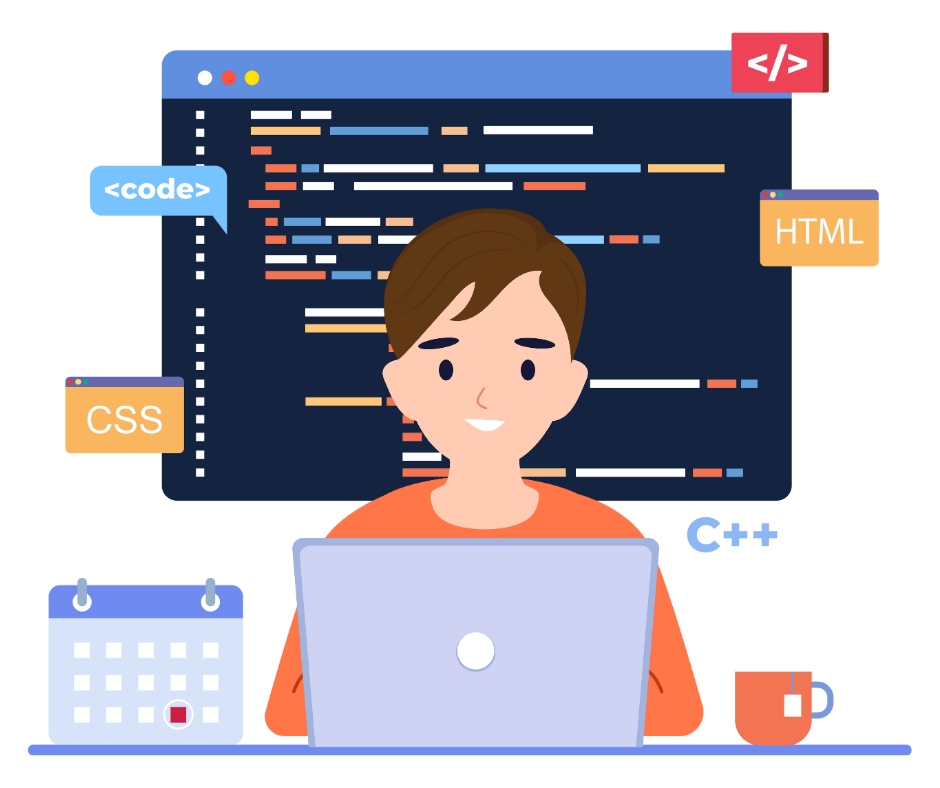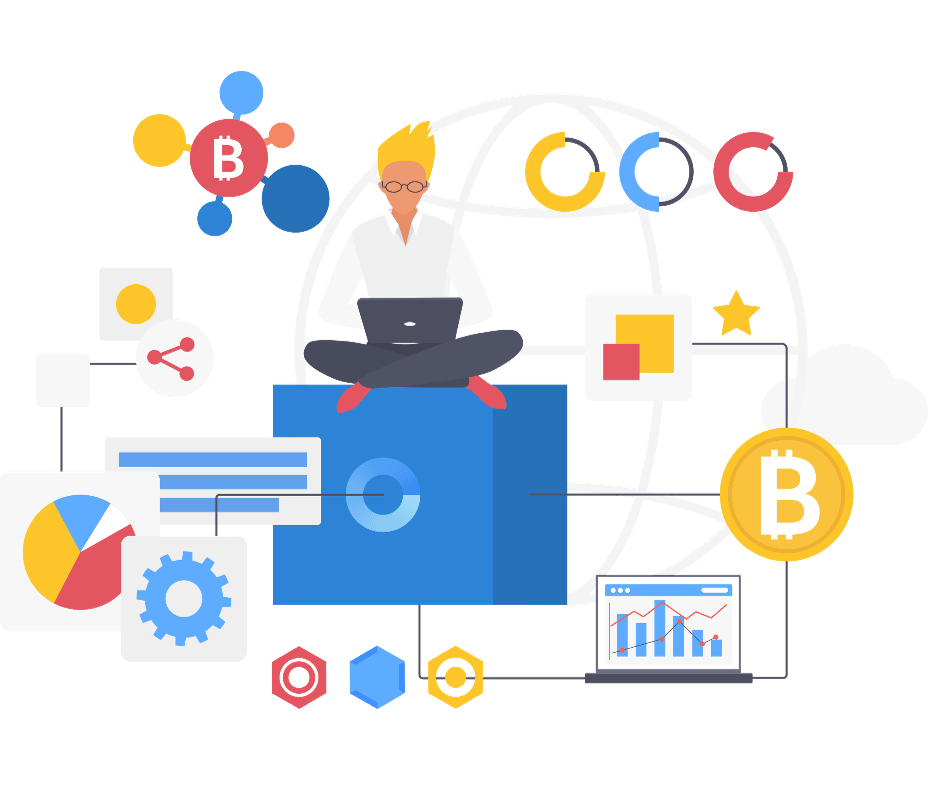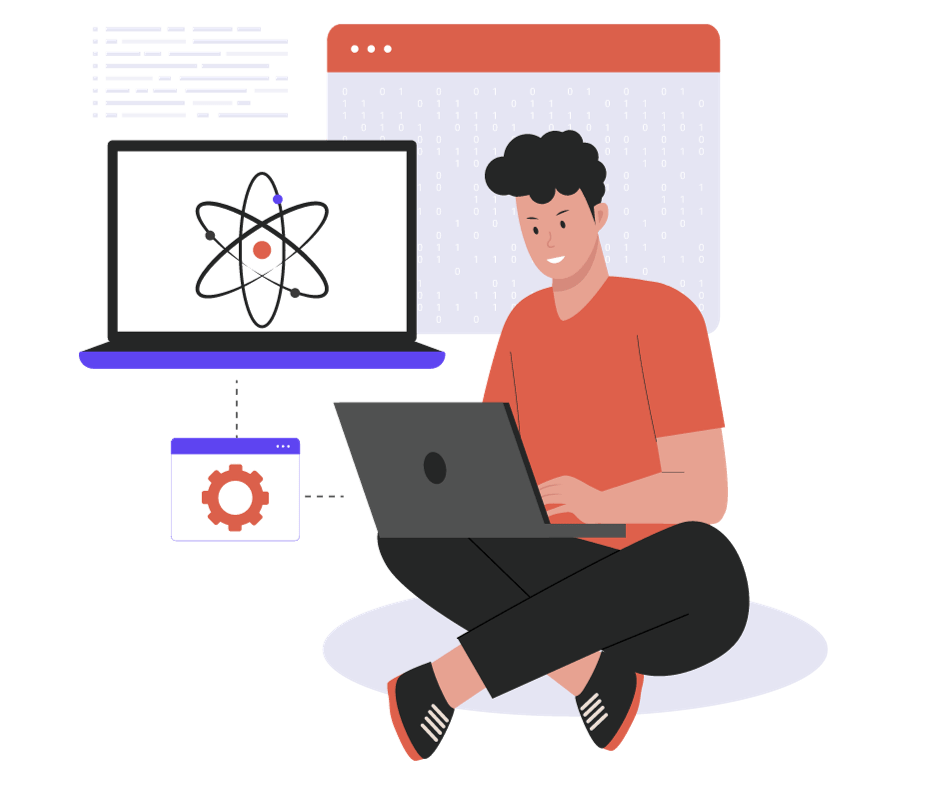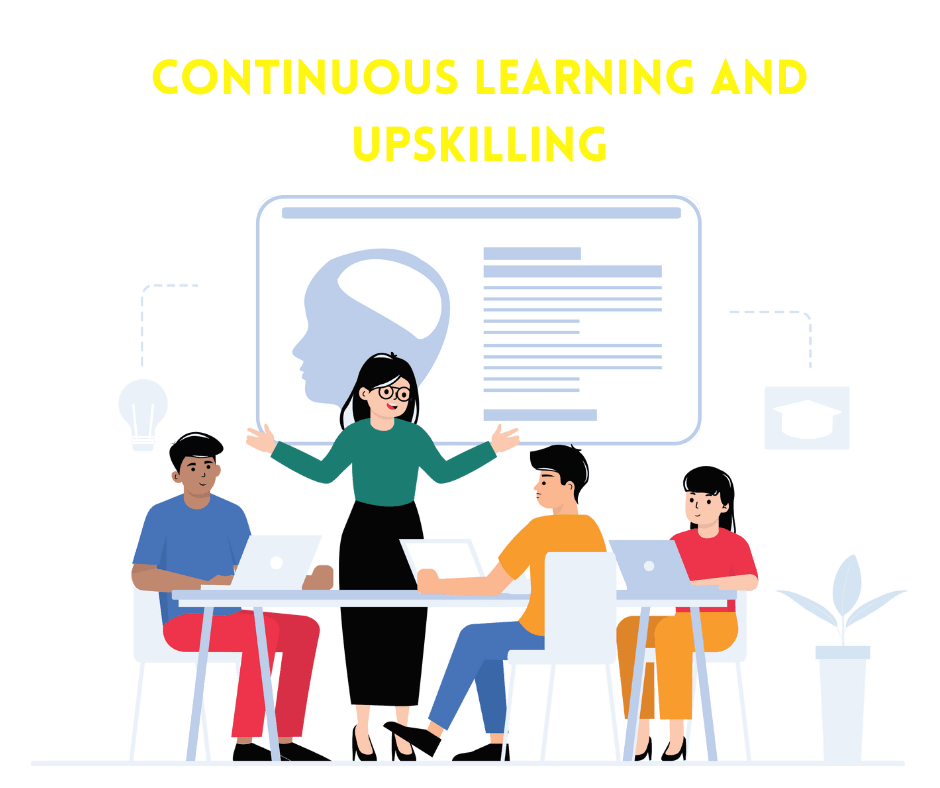
The Future of Software Development: Navigating Trends and Technologies
The future of software development is an exciting frontier marked by a convergence of groundbreaking technologies and evolving trends. In this comprehensive exploration, we delve into the key drivers shaping the trajectory of software development, ranging from artificial intelligence and low-code platforms to edge computing and quantum technologies. Developers, as the architects of this dynamic landscape, must adapt to the changing terrain to remain at the forefront of innovation.
Artificial Intelligence and Machine Learningandvirtualre(3).png)
Integration of AI and ML in Software Development: The infusion of AI and ML algorithms into software applications is transforming the development landscape. This involves enhancing functionality, automating tasks, and improving decision-making processes, ultimately optimizing user experiences.
Automated Code Generation and Optimization: AI and ML are ushering in an era of automated code generation and optimization. This accelerates development processes and enhances code quality and performance, leading to more efficient and reliable applications.
AI-Driven Testing and Debugging: Leveraging AI for intelligent testing and automated debugging contributes to the improvement of software quality and reliability—predictive analytics assist in identifying potential issues before they manifest, streamlining the development life cycle.
Low-Code and No-Code Development
Rise of Low-Code and No-Code Platforms: The emergence of platforms facilitating software development with minimal hand-coding is democratizing the field. This trend allows individuals with diverse backgrounds to actively participate in application development, fostering a more inclusive and collaborative environment.
Impact on Traditional Development Workflows: Low-code and no-code development are reshaping traditional workflows, making software development more accessible and efficient. This shift empowers teams to rapidly prototype and iterate, accelerating time-to-market for new applications. Democratization of Software Development: The democratization of software development is breaking down barriers and enabling a wider range of individuals to contribute to the creation of innovative solutions. This inclusive approach fosters creativity and diversity within development teams.
Cloud Computing Evolution
Containerization and Orchestration: Technologies like Docker and Kubernetes are driving cloud-native development, allowing developers to create scalable and portable applications. This facilitates seamless collaboration and access to code and data from anywhere worldwide.
Serverless Computing: Serverless computing eliminates the need to manage the underlying infrastructure, enabling automatic scaling and reducing operational overhead. This approach enhances efficiency and agility in software development.
Microservices Architecture: Designing applications as a collection of loosely coupled, independently deployable microservices promotes scalability and flexibility. This architecture aligns with the principles of cloud-native development, facilitating agile development practices.
DevOps and Continuous Integration/Continuous Deployment(1).png)
Expansion of DevOps Practices: The evolution of the DevOps culture emphasizes collaboration and communication between development and operations teams. This collaborative approach enhances the efficiency and reliability of software delivery.
CI/CD Pipeline Improvements and Innovations: Continuous integration and continuous deployment pipelines are undergoing enhancements for faster and more reliable software delivery. Innovations in these pipelines contribute to streamlined development workflows.
Integration of AI in DevOps for Predictive Analytics: AI's integration into DevOps processes enables predictive analytics, automating decision-making within the pipeline. This results in optimized processes, proactive issue resolution, and improved overall efficiency.
Edge Computing(1).png)
Development for Edge Devices and Environments: Edge computing involves creating applications to run on edge devices, reducing latency by processing data closer to the source. This is particularly crucial in applications requiring real-time responses.
Edge Computing in IoT Applications: Integrating edge computing into IoT applications allows for on-site data processing, enhancing the speed and efficiency of IoT systems. However, developers must address challenges related to security, connectivity, and resource constraints.
Challenges and Opportunities in Edge Development: While edge computing offers new possibilities for distributed computing, developers need to tackle challenges related to security and resource constraints. Successfully navigating these issues opens avenues for innovative applications.
Cybersecurity in Software Development
Secure Coding Practices: Implementing coding standards and best practices is essential to prevent vulnerabilities. The integration of security measures at every stage of the development process is crucial for robust cybersecurity.
Integration of Security into the Development Lifecycle: Cybersecurity should be an integral part of the development lifecycle. Incorporating security measures in the early stages ensures a proactive approach to threat mitigation.
AI-Driven Cybersecurity Solutions: Utilizing AI to detect and respond to security threats in real time enhances the effectiveness of cybersecurity measures. AI-driven solutions contribute to adaptive and responsive security frameworks.
Blockchain Technology
Blockchain Applications in Software Development: Implementing decentralized applications and leveraging blockchain for secure and transparent transactions redefines trust and accountability in software development.
Smart Contracts and DApps: The development of self-executing contracts and decentralized applications on blockchain platforms introduces new paradigms for secure and automated transactions.
Impact on Data Security and Integrity: Blockchain's inherent features enhance data security and integrity, providing a tamper-proof and transparent framework for software applications.
Augmented reality (AR) and virtual reality (VR)andvirtualre.png)
AR/VR Application Development: Creating applications that overlay digital information in the real world (AR) or immerse users in a virtual environment (VR) revolutionizes user experiences.
Gaming, Education, and Enterprise Use Cases: AR and VR technologies find applications in gaming, education, and various industries, offering novel ways for users to interact with software.
Challenges in AR/VR Software Development: Overcoming technical and user experience challenges associated with AR and VR is crucial for widespread adoption. Addressing these challenges unlocks the full potential of immersive technologies.
Quantum Computing
Quantum Computing Impact on Algorithms and Programming Languages: Adapting algorithms and programming languages to harness the unique capabilities of quantum computers is essential for unleashing their full potential.
Quantum-Safe Cryptography: Developing cryptographic techniques resistant to quantum attacks ensures the security of information in a quantum computing era.
Early-Stage Quantum Programming Languages and Frameworks: Exploring and adopting new languages and frameworks for quantum programming lays the foundation for the integration of quantum computing into mainstream software development.
Ethical and Responsible Software Development
Considerations for AI Ethics: Ensuring fairness and transparency in AI applications is imperative to avoid biases and favoritism. Ethical AI development fosters trust and inclusivity.
Privacy and Data Protection: Responsible handling of personal data is a cornerstone of ethical software development. Adhering to regulations and safeguarding user privacy builds a foundation of trust.
Sustainable and Inclusive Development Practices: Developing software with environmental sustainability in mind and ensuring accessibility for diverse user groups contributes to responsible and inclusive development.
Collaboration Tools and Remote Development
Remote Work Trends in Software Development: Adapting to the increasing trend of remote work in the software development landscape requires embracing collaboration tools that facilitate seamless communication and project management.
Collaboration Tools and Platforms: The use of tools that enable easy collaboration among team members, regardless of their physical location, is crucial for maintaining productivity and fostering effective teamwork.
Virtual Team Dynamics and Challenges: Understanding and addressing the dynamics and challenges associated with virtual teams is essential for creating a cohesive and productive remote work environment.
Agile and Beyond.png)
Evolution of Agile Methodologies: The agile way of working continues to evolve to meet the changing needs of software development. Keeping abreast of these changes allows teams to adopt agile methodologies that best suit their projects.
Hybrid Development Methodologies: Combining agile methodologies with other approaches provides a tailored framework that aligns with the specific requirements of diverse projects, ensuring flexibility and adaptability.
Agile at Scale for Large Enterprises: Applying agile principles to large-scale projects within large enterprises requires a strategic approach to ensure the successful integration of agile practices.
5G and Mobile Development
Impact of 5G on Mobile App Development: The advent of 5G networks introduces opportunities for enhancing the performance and capabilities of mobile applications, offering faster and more reliable connectivity.
Mobile Development Trends: Staying updated on the latest trends in mobile app development, such as cross-platform frameworks and progressive web apps, enables developers to create cutting-edge and versatile mobile solutions.
Progressive Web Apps and Cross-Platform Frameworks: Developing progressive web apps that function seamlessly across different devices ensures a broad user reach in the rapidly evolving mobile landscape.
Human-Computer Interaction (HCI)(1).png)
Natural Language Processing in Software Interfaces: Creating interfaces that understand and respond to natural language enhances user experiences and accessibility, making software more intuitive.
Gesture-Based and Voice-Based Interactions: Designing software that recognizes gestures and responds to voice commands provides users with alternative and user-friendly ways to interact with applications.
Accessibility Considerations in Software Design: Building software with accessibility in mind ensures that individuals with diverse abilities can engage with applications easily and inclusively.
Continuous learning and upskilling
Lifelong Learning for Software Developers: Embracing a mindset of continuous learning is crucial for staying relevant in the ever-evolving field of software development. This commitment to learning fosters adaptability and innovation.
Skill Sets for the Future: Identifying and acquiring the skill sets in demand for future software jobs positions developers to meet the evolving requirements of the industry.
Training and Education in Emerging Technologies: Investing time and resources in acquiring knowledge about emerging technologies ensures that developers are well-equipped to navigate the changing landscape and contribute to cutting-edge advancements.
In summary, the future of software development is marked by AI integration, low-code platforms, edge computing, and cybersecurity. Ethical practices, AR/VR impact, remote work dynamics, and continuous learning are crucial. Agile methodologies, 5G in mobile development, and advancements in HCI shape the landscape. Developers must adapt, embracing emerging technologies for innovative, inclusive, and responsible solutions in this ever-evolving field.
.png)


.png)
.png)
.png)
.png)
.png)
.png)